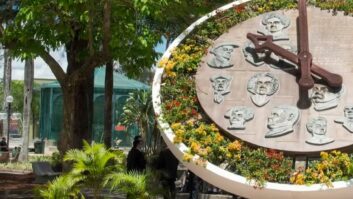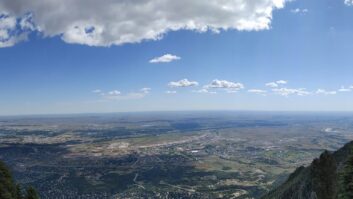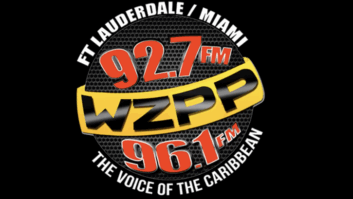LPFM radio stations, along with some full-power but small-market stations, often are severely limited in resources. It’s sometimes difficult for low-power stations to afford such “luxuries” like a full-time engineer or any staff with broadcast experience. But money shouldn’t be a limiting factor to any station in the quest for knowledge.


ENGINEERING ASSISTANCE
First and foremost, get to know broadcast engineers in or near your market.
Find out when the next Society of Broadcast Engineers chapter meeting will be held. (Go to www.sbe.org to learn more.) Attend and consider joining, even if you are just a beginner in engineering. Advice is always free from good engineers, who may be willing to lend a hand.
Contact a local station and ask to speak to its engineer, if they have one. Introduce yourself and be that “good neighbor.” Ask for a tour of the station (take donuts — they win over many engineers!)
Seek volunteers with audio/visual experience and look for amateur radio folks. Hams are great around towers and transmitters and can be of help.
I assist a number of small stations and am always glad to lend free advice. I find most engineers glad to share or point you in the right direction.
ON-AIR TRAINING
Radio programming chops and experience on the air are sometimes difficult to find in the LPFM environment. But chances are you have one or two people who have worked in radio, whether it’s someone retired from commercial radio or a person who spent time on the air at their college station. These people can be a wealth of knowledge when it comes to training less-experienced announcers.

It’s not farfetched to seek out someone from another station and ask them to pay a visit to your LPFM and hold a training class. WDNP 102.3 in Dover, Ohio, has been fortunate to tap into some high-profile programmers and announcers who have recently moved out of radio and were glad to hold some classes for volunteers and even cut some liners.
Dave Robbins, formerly of CBS and its digital radio initiative as the chief programmer, paid a visit and spoke with some volunteers. Robbins is not only a former national PD, but a former GM of stations in Columbus, Ohio, as well as an on-air personality at stations from St. Louis to Chicago.
Recently, former iHeartMedia regional PD Steve Kelly stopped by for a class on on-air presentation. Not only has Kelly worked as a PD in large markets, he’s also worked on-air in major-market radio. Of even more benefit is his distinction of being the “morning man” at commercial stations in the local Dover-New Philadelphia, Ohio, market. He had great insight into local people and local radio.
This type of experience is incredibly valuable to volunteer announcers and provides excellent training and insight into good, old-fashioned, on-air radio work.

OTHER LOCAL EXPERTS
Besides the programming and engineer, there are many opportunities to tap into your local market’s experts. For instance, a local teacher hosts a kid’s radio program on WDNP. It’s an hour-long show called “Gimme That Shu” featuring Dover school teacher Steve Shumaker. It’s funny and entertaining as he talks with local kids about their interests, school and teachers.
Another teacher, local middle school band director, is working on a special jazz show. Even the morning man on this low-power station does his show each weekday prior to his “paying job” at the local car dealer.
DNP has brought in local celebrities and people who have gone on to achieve national celebrity status. Getting well-known local people to cut liners and voice-overs helps to build the audience. Their voices are ones your audience knows and identifies with.
LOOK WITHIN YOUR RANKS
Look at the special gifts in each of your

volunteers. There is no one who walks into your station to volunteer who doesn’t have some incredible talent. You just need to find out what it is. When you do this, you’ll find they’ll not only excel at what they know, but they’ll grow the station and the abilities of the other volunteers.
I cite WDNP because I work with the station on nearly a daily basis. One volunteer is a retired sheriff’s deputy and an avid motorcycle rider. You can see the expertise he brings in public service and working with people.
Other volunteers are IT pros who help keep the station on-the-air, as computers are a key part of our daily life in and out of radio.

In one case, a local high school student not only found a way to expand his own social skills through the station, he was the first recipient of the DNP 102.3 Volunteer Scholarship as he headed off to Ohio State University.
Volunteers need to be given the room to grow and explore — and to be allowed to use their knowledge to help the station expand.
In the case of DNP, the station’s mission is two-fold: first, to provide an opportunity for people to experience and grow in radio (not just being on-the-air, but social media, engineering, public affairs and public relations — all facets of our industry); and second, to act as “the voice” for other nonprofit organizations in the area. The station prides itself on helping the audience learn about the local Big Brothers/Big Sisters, to library events, local museums, just about any nonprofit that seeks assistance getting their message out in the world.

Of course, the legal limitations placed on LPFMs excludes fundraising for these organizations, but that is a minor issue. This work to assist other nonprofits helps to grow the station not only in listeners, but also in volunteers. These organizations tend to give back to the station as much or more than the station gives to them through promoting their offerings.
These are just some of the ideas that have built this LPFM and made it a part of the local community. Most ideas come without any cost, yet have a positive impact to the station, the quality of programming (and volunteers) and the community. A big part of the success of any station depends on its integration into the community, to become a part of what is happening in the lives of the people you serve.
Reach out to these listeners — they could be your next volunteer with the expertise in an area where you could really use them.





